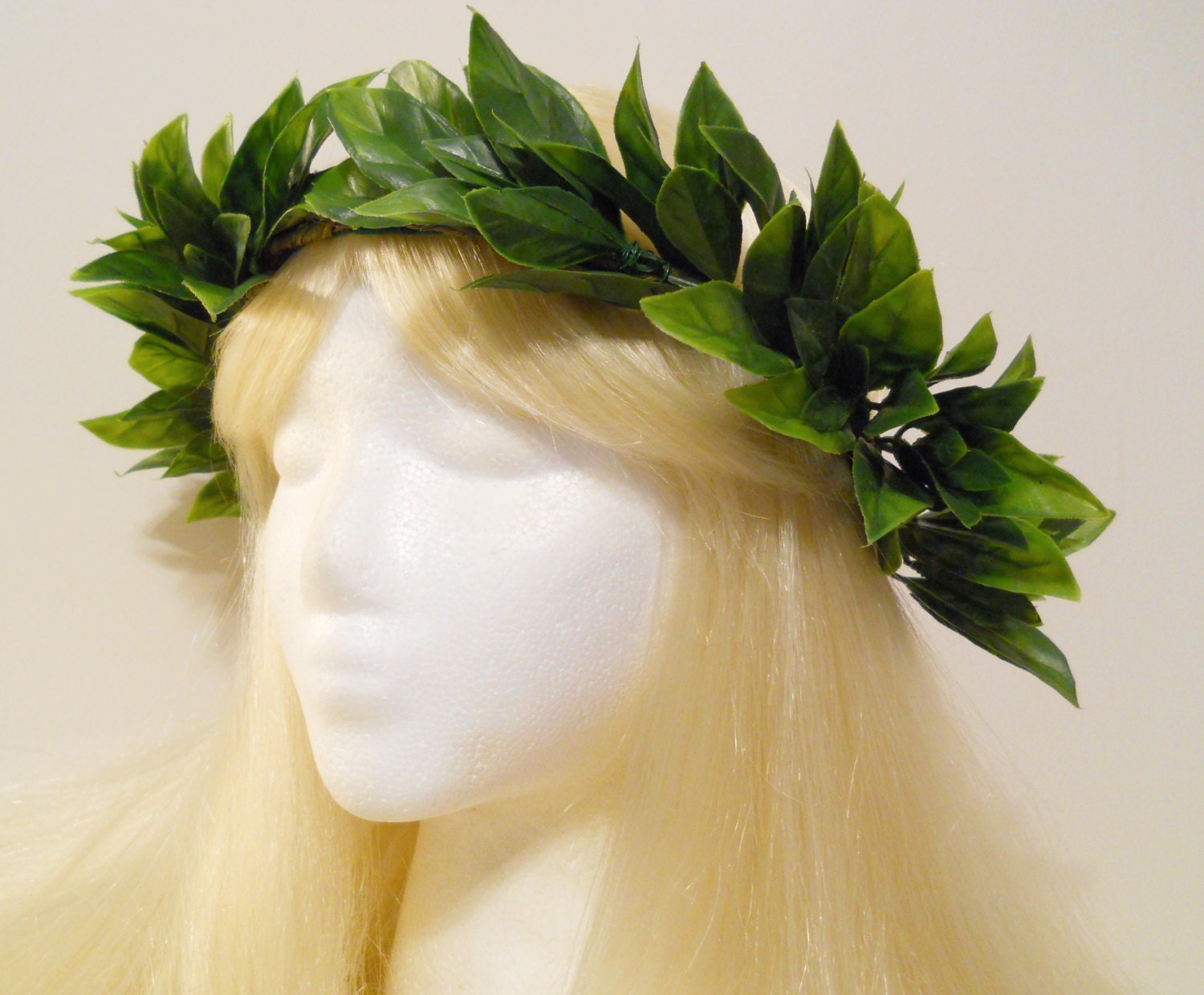
Laurel Wreath Crown Green Leaf Laurel Greek Roman Goddess
5. The Forest Crown. This is the kind of laurel wreath that would be appropriate on the head of a regal wood nymph. It is simple and sweet, but gets a little more realistic than the other wreaths with a touch of asymmetry. To create it, free-hand a circle. Now, draw little "branches" or curved sticks over that circle.
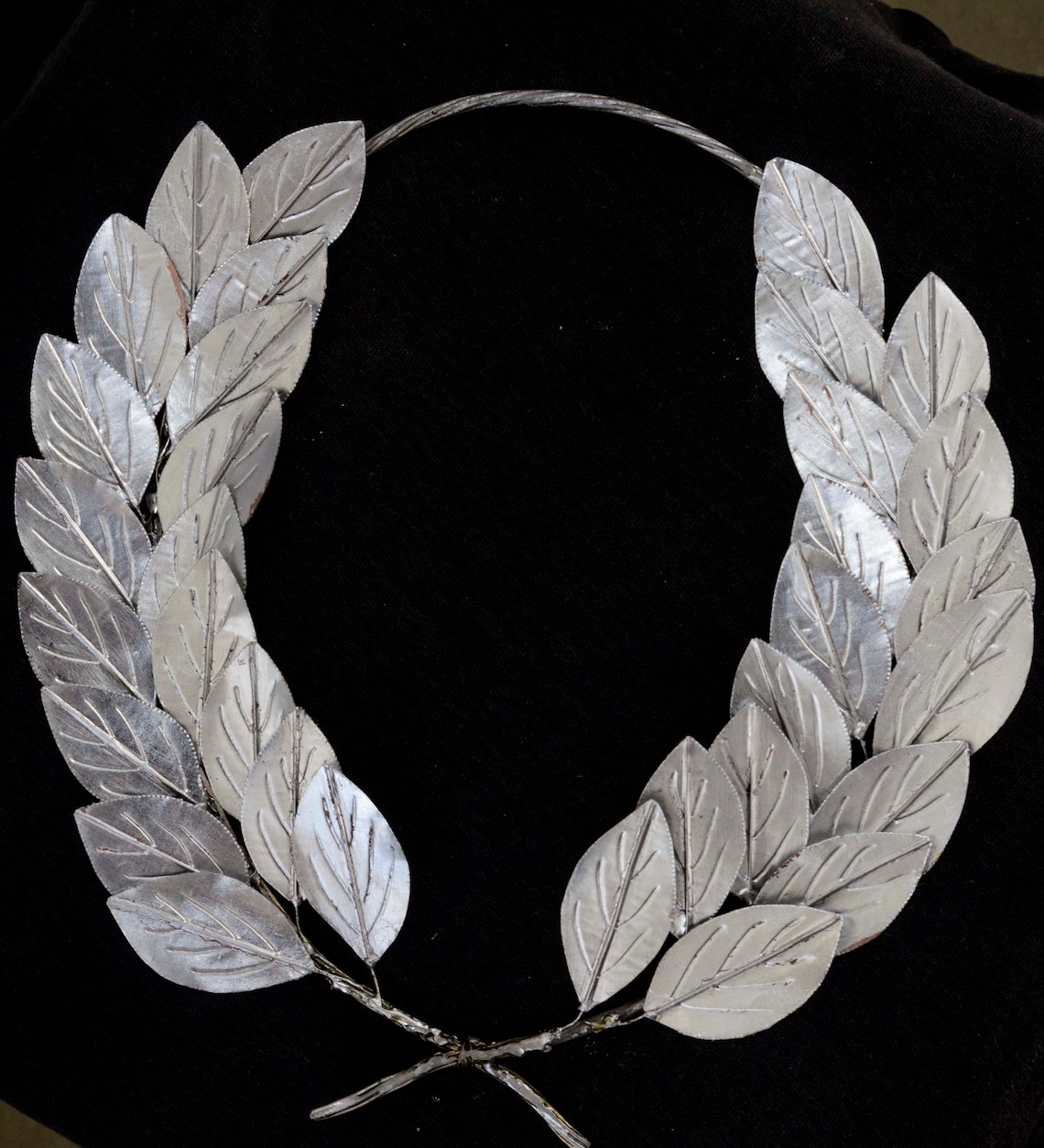
Laurel Wreath Silver Crown Sculpture Bay Leaf Ancient Greek Etsy
Laurel's function as a prize in honor of Apollo and a marker of poetic power is the reason the laureate crown was adopted to honor poets and men of letters in the early Renaissance. The story of.

Neo Classical Laurel Wreath Diadem in 2020 Laurel wreath, Laurel
Each December on National Wreaths Across America Day, our mission to Remember, Honor and Teach is carried out by coordinating wreath-laying ceremonies at Arlington National Cemetery, as well as over 4,225 additional locations in all 50 U.S. states, at sea, and abroad. Help us by sponsoring Veterans Remembrance Wreaths or by joining us on December 14, 2024 at a participating location near you.

Green Leaf Crown for a Greek Roman Goddess Laurel Wreath Headpiece
The laurel wreath crown was a popular foliage headband in Ancient Greece. The laurel crown is a garland formed of interwoven leaves and branches, as the name indicates. It was initially manufactured from the bay laurel plant's leaves (botanical name: Laurus nobilis). These leaves are mildly aromatic and have a smooth and lustrous texture.
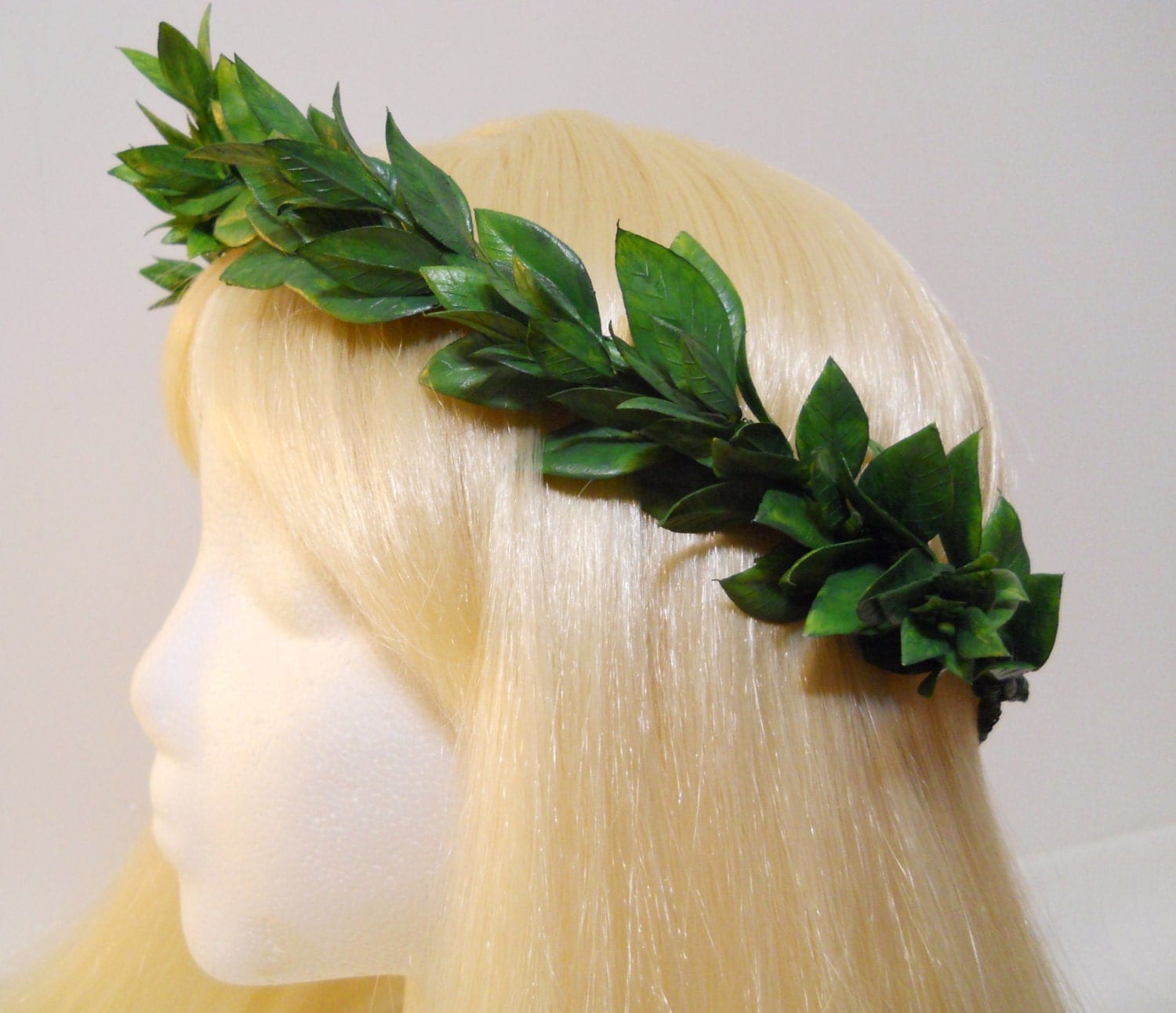
Laurel Wreath Crown Green Leaf Laurel Greek Roman Goddess
At the Pythian Games, which started as musical competitions, victors received laurel wreaths, with the laurel coming from the Vale of Tempe. Pausanias writes: " The reason why a crown of laurel is the prize for a Pythian victory is in my opinion simply and solely because the prevailing tradition has it that Apollo fell in love with the daughter.
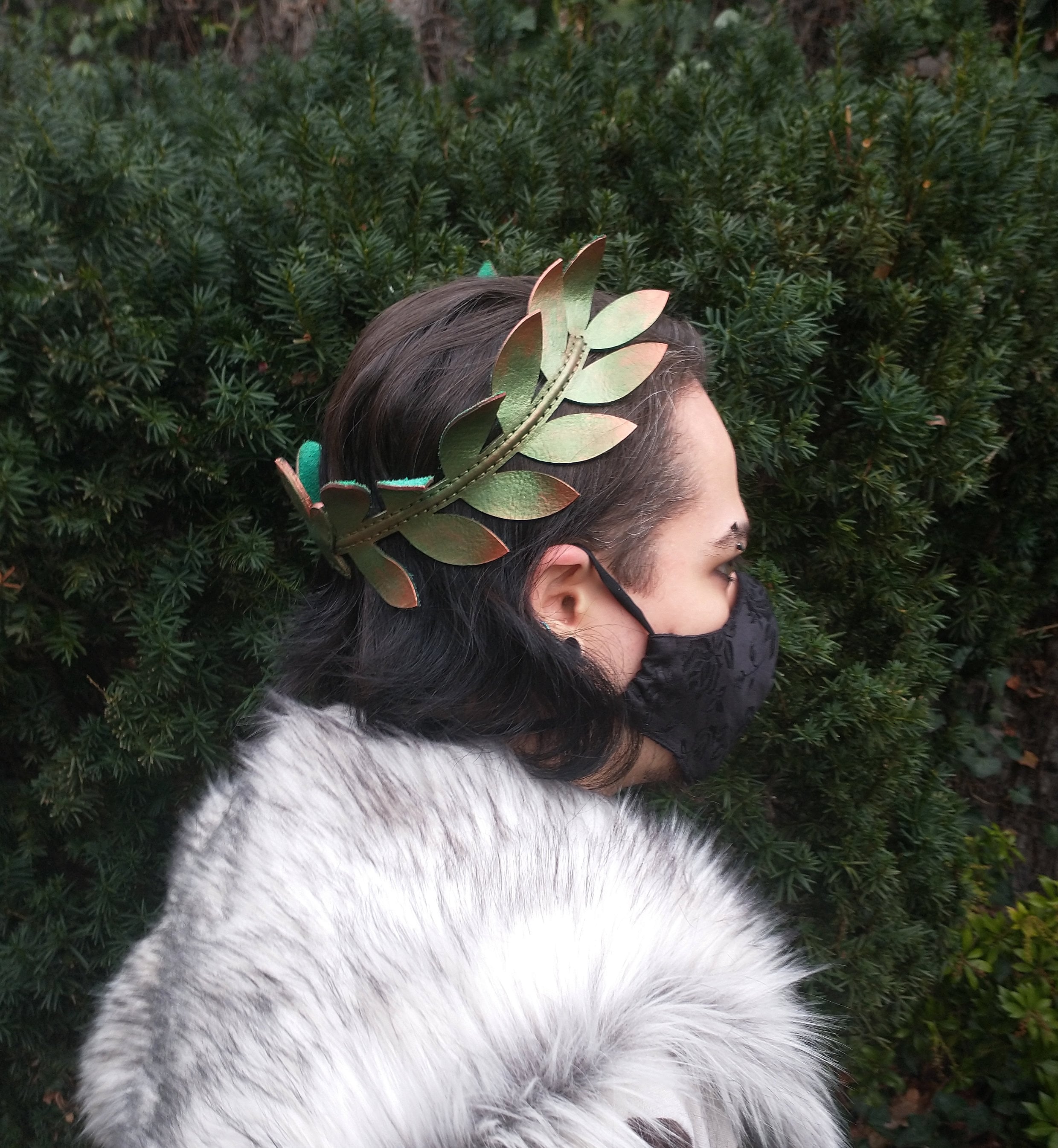
Laurel Wreath Crown
In ancient Rome, the tradition of the wreath as a reward for triumph or achievement continued. Romans dressed their leaders and military personnel in crowns made of laurel, oak, or myrtle. The so-called grass crown, or corona obsidionalis, was the highest military honor awarded by a besieged army to the general who liberated them. The grass.

Gold Leaf Crown Laurel Wreath Greek Roman by MyFairyJewelry Gold leaf
Ancient Religion and Mythology Greek Roman With its simple yet elegant design, the laurel wreath has symbolized victory, honor, and achievement for thousands of years. From ancient Greece to modern times, it has been used to crown the heads of great leaders, athletes, and artists.
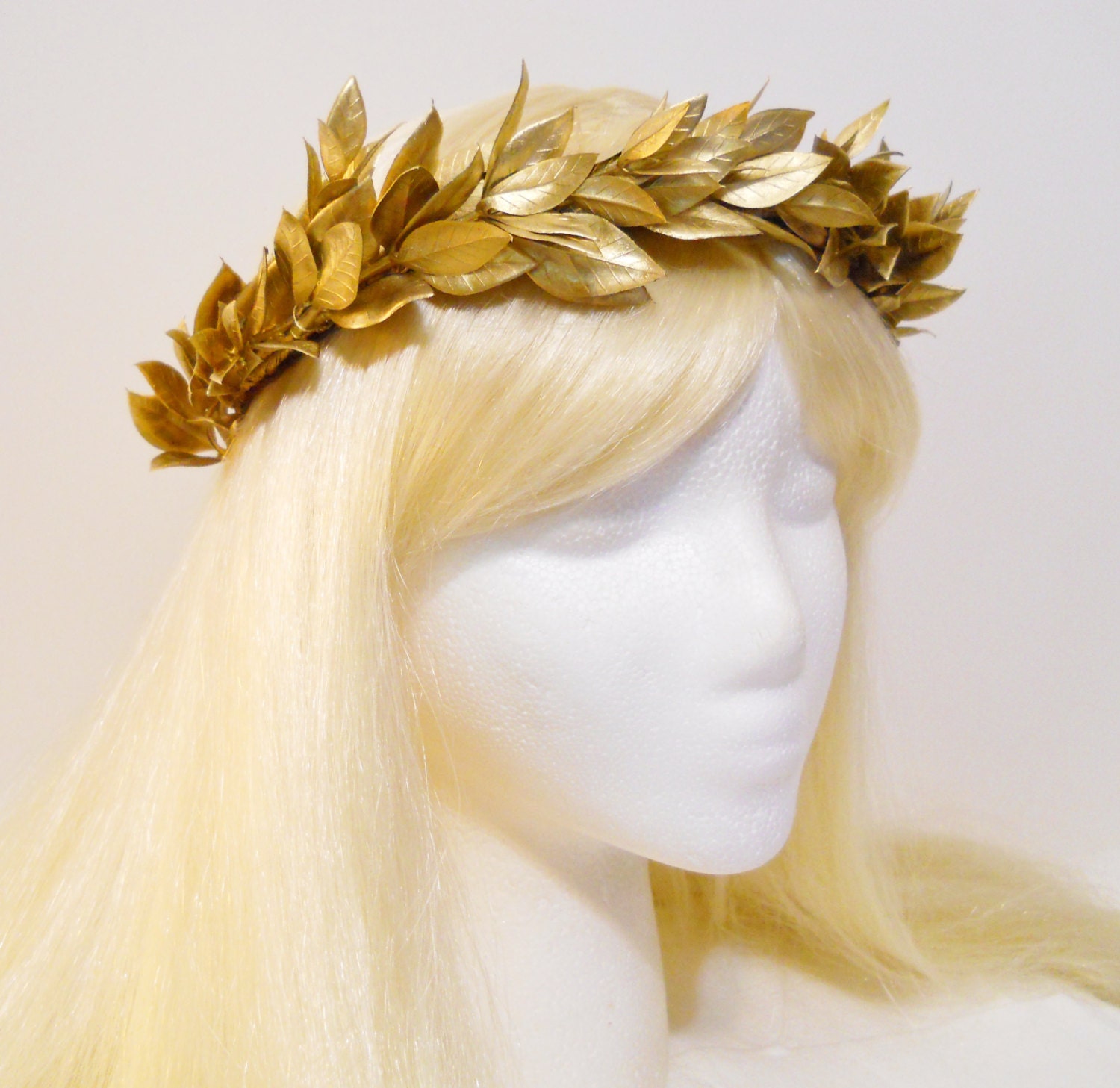
Gold Leaf Crown Laurel Wreath Greek Roman Goddess Golden
In common modern idiomatic usage, a laurel wreath or "crown" refers to a victory. The expression "resting on one's laurels" refers to someone relying entirely on long-past successes for continued fame or recognition, where to "look to one's laurels" means to be careful of losing rank to competition. [2] Background Apollo and Daphne

“Gold laurel wreath from the Kerameikos Archaeological Museum Greek
The Fondation Dosne-Thiers painting shows Napoleon wearing the famous laurel-wreath crown, produced by Biennais and made up of forty-four large leaves, forty-two detachable berries and twelve smaller leaves, set on an oval band and fixed at the back of the head by a pin. This crown was destroyed during the Restoration.

Channel Your Inner Olympian with Our DIY Laurel Head Wreath Head
Wreaths of leaves from laurel myrtle, and were particularly symbolically significant, with the laurel wreath the victor's crown at the Pythian Games and at a Roman triumph, and the olive wreath the prize at the Olympic Games. Symposiasts wore crowns of , while maenads and other followers of Dionysus wore wreaths of or of vine leaves.

RH's Brass Laurel WreathCrown the season with our grand ring of bay
The famous laurel wreath (Corona Triumphalis) made — believe it or not — out of laurel leaves, was only to be worn by a general during his Triumph. A Triumph in ancient Rome, especially.
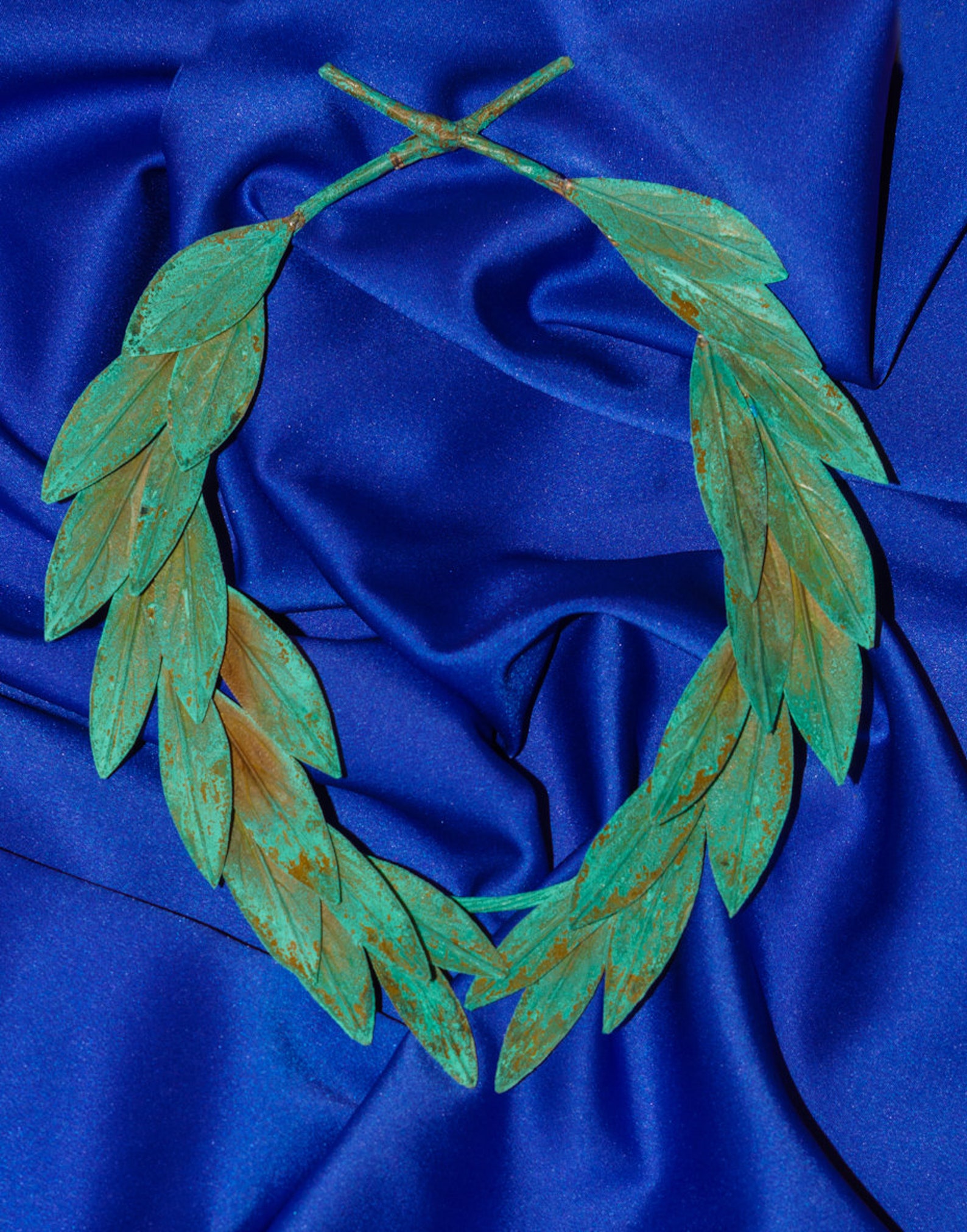
Laurel Wreath Crown Ancient Greek Style Green Rust Bay Leaves Etsy
The laurel wreath crown is a foliage headband that was highly renowned in Ancient Greece. The laurel wreath crown, as the name suggests, is a garland made from interlocked leaves and branches. It was originally made from the leaves of the bay laurel plant (botanical name: Laurus nobilis). Laurel Wreath - © Paolo Schorli at ShutterStock

Laurel Wreath Crown ubicaciondepersonas.cdmx.gob.mx
Victory and Achievement: In ancient Greece and Rome, laurel wreaths were given to victors in athletic competitions, including the ancient Olympic Games, and to generals who led their armies to victory. The wreath represented the achievement and glory of the victor. Wisdom and Knowledge: Apollo was the god of wisdom and the arts.

Crown and laurel wreath Machine Embroidery Design Etsy Lettering
Laurel wreath. A laurel wreath is a circular wreath made of interlocking branches and leaves of the bay laurel ( Laurus nobilis ). This is an evergreen whose leaves give off a pleasant scent . The wreath is traditionally worn on the head. In Greek mythology, the god Apollo is shown wearing a laurel wreath because of the story of Apollo and Daphne.

Laurel Crown Green Leaf Laurel Wreath Roman Goddess Laurel Wreath
In Italy, the laurel wreath crown (la corona di alloro) is traditionally given to students after graduating college to celebrate academic accomplishments. The students wear the wreath after graduation ceremonies for the rest of the day. Created at the University of Padua two centuries ago, the tradition has spread to the rest of Italy.

Gold Laurel Wreath Image & Photo (Free Trial) Bigstock
Laurel Wreath Symbol of victory, honor, and peace. The laurel wreath was used by the Ancient Greeks. The laurel wreath was a symbol of Apollo and the leaf itself was believed to have spiritual and physical cleansing abilities. Ancient Greeks awarded laurel wreaths to victors in the Olympics and poetic competitions.